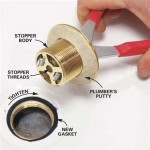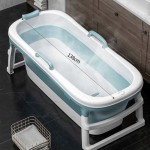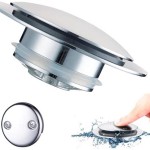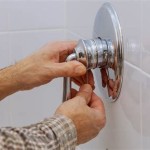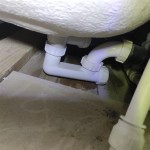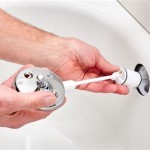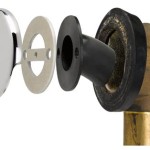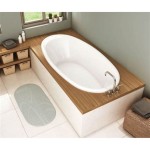Bathtub vs. Shower: A Comparative Analysis of Costs
The decision to install a bathtub or a shower in a bathroom is a significant one, impacting both daily routines and long-term home value. Cost is often a primary consideration, encompassing not only the initial purchase and installation but also ongoing expenses related to water consumption, energy usage, and maintenance. This article provides a detailed comparison of the various costs associated with bathtubs and showers, equipping homeowners with the information necessary to make an informed choice.
Initial Purchase and Installation Costs
The upfront financial investment in a bathtub or shower can vary considerably based on several factors, including the type of fixture, its size, features, and the complexity of the installation process.
Bathtub Costs: Bathtubs come in a wide range of materials and styles, each influencing the price. Basic acrylic or fiberglass bathtubs are typically the most affordable, starting at a few hundred dollars. More luxurious options, such as cast iron or copper tubs, can cost significantly more, reaching several thousand dollars. The size of the bathtub also affects the price, with larger tubs generally being more expensive. Special features, such as whirlpool jets or air massage systems, further increase the cost.
Installation costs for bathtubs can range from a few hundred dollars to over a thousand, depending on the complexity of the project. A simple replacement of an existing bathtub in the same location will typically be less expensive than a completely new installation that requires plumbing modifications or structural alterations. The cost of labor, plumbing materials, and any necessary permits must be factored into the overall installation cost. Furthermore, if the existing bathroom layout needs to be reconfigured to accommodate the bathtub, this will add to the expense.
Shower Costs: Showers also present a diverse range of pricing options. A basic shower stall with a prefabricated base and enclosure is often the most economical choice, starting at a comparable price to basic bathtubs. However, custom-built showers can be considerably more expensive. These may involve tiling, custom glass enclosures, and multiple showerheads, significantly increasing the material and labor costs.
Shower installation costs are similar to those for bathtubs, with the complexity of the project being the primary determinant. Replacing an existing shower in the same location is generally less expensive than creating a new shower where one did not previously exist. The cost of tiling, plumbing modifications, and the installation of shower doors or enclosures must be considered. Custom-built showers often require more specialized skills and expertise, leading to higher labor costs.
Additionally, the selection of showerheads can impact the overall cost. A standard showerhead is relatively inexpensive, while more advanced options, such as rain showerheads or multi-function showerheads, can significantly increase the cost. The installation of multiple showerheads requires more extensive plumbing and may necessitate a larger water heater, further adding to the expense.
Water Consumption and Energy Costs
Beyond the initial purchase and installation, the ongoing costs associated with water consumption and energy usage must be considered. Bathtubs and showers differ significantly in their water consumption rates, which directly impacts both water bills and the energy required to heat the water.
Bathtub Water Consumption: Filling a bathtub requires a significant amount of water. Standard bathtubs typically hold between 30 and 50 gallons of water, while larger soaking tubs can hold even more. The actual amount of water used will depend on the size of the tub and the water level to which it is filled. Frequent bathtub use can lead to substantial water bills, particularly in areas with high water rates.
Furthermore, heating the large volume of water required to fill a bathtub consumes a considerable amount of energy. Whether using a gas or electric water heater, the energy required to heat the water will translate directly into higher utility bills. The cost of heating water will depend on the type of water heater, the cost of energy in the area, and the frequency of bathtub use.
Shower Water Consumption: Showers generally consume less water than bathtubs, particularly if low-flow showerheads are used. Standard showerheads typically use around 2.5 gallons of water per minute, while low-flow showerheads can reduce water consumption to 2.0 gallons per minute or less. The total amount of water used in a shower will depend on the flow rate of the showerhead and the duration of the shower. A shorter shower with a low-flow showerhead can significantly reduce water consumption compared to filling a bathtub.
The energy required to heat the water used in a shower is also generally less than that required to fill a bathtub. Because showers use less water overall, the water heater does not need to work as hard to heat the water. This can result in lower energy bills, particularly for households with frequent shower usage.
However, it's important to consider longer shower durations. A significantly long shower could potentially equal or exceed the water consumption of a bath, diminishing the cost savings. Therefore, responsible water usage habits are crucial regardless of the choice between a bathtub and shower.
Maintenance and Repair Costs
Both bathtubs and showers require regular maintenance to prevent problems and extend their lifespan. Over time, repairs may also be necessary due to wear and tear or accidental damage. The cost of maintenance and repairs can vary depending on the type of fixture, the quality of materials, and the frequency of use.
Bathtub Maintenance and Repair: Bathtubs can be susceptible to various maintenance issues, including clogged drains, chipped surfaces, and leaky faucets. Clogged drains are often caused by hair, soap scum, and other debris. Regular cleaning and the use of drain screens can help prevent clogs. Chipped surfaces can occur in acrylic or fiberglass bathtubs, particularly if they are exposed to sharp objects or harsh cleaning chemicals. Repairs for chipped surfaces may involve patching or resurfacing the bathtub.
Leaky faucets are a common problem in bathrooms and can lead to water waste and increased water bills. Replacing worn-out faucet washers or cartridges can often resolve leaky faucet issues. More serious plumbing problems, such as leaks in the bathtub drain or supply lines, may require the services of a professional plumber.
Shower Maintenance and Repair: Showers also require regular maintenance to prevent problems such as mildew growth, clogged showerheads, and leaky shower doors. Mildew can thrive in the moist environment of a shower and can be difficult to remove. Regular cleaning with mildew-resistant cleaners and proper ventilation can help prevent mildew growth. Clogged showerheads can be caused by mineral deposits that accumulate over time. Soaking the showerhead in vinegar or using a descaling solution can often remove these deposits.
Leaky shower doors or enclosures can lead to water damage to surrounding walls and floors. Replacing worn-out weather stripping or caulking can often resolve leaky shower door issues. More serious problems, such as cracked tiles or damaged shower pans, may require more extensive repairs. The cost of shower maintenance and repairs will depend on the severity of the problem and the cost of materials and labor.
Furthermore, the type of materials used in the shower can influence maintenance costs. For example, tiled showers require periodic grout cleaning and sealing to prevent water damage and mildew growth. Glass shower doors may require special cleaners to maintain their clarity and prevent water spots. The choice of materials should be considered in light of their maintenance requirements and associated costs.
In conclusion, the overall cost of choosing between a bathtub and a shower is a multifaceted consideration. It extends beyond the initial purchase price and installation and encompasses long-term operational costs associated with water and energy consumption, as well as maintenance and potential repairs. A thorough assessment of individual needs, usage habits, and financial resources is crucial in making an informed decision that aligns with both budgetary constraints and lifestyle preferences. Understanding the nuances of each cost factor allows homeowners to choose the option that provides the best value over the long term.

Average Bathtub To Shower Conversion Cost In 2024 Forbes Home

Tub Vs Shower The Big Bathroom Remodeling Design Decision Bob Vila

Bathtub Or Shower Which Is Better Pcs

Walk In Shower Vs Bathtub Re Value Glass Doctor

How Much Does A Walk In Shower Cost 2024 Forbes Home

Shower Installation Costs Are As Varied Your Design Options Block Guides

The Tub Vs Shower Decision Is A Better Than Jn Tiling And Construction Bathroom Remodeling Experts

Should I Replace My Bathtub With A Shower

What You Need To Know Before Replacing A Bathtub With Shower

How Much Does A Walk In Shower Cost To Install 2024 Data Angi
Related Posts

